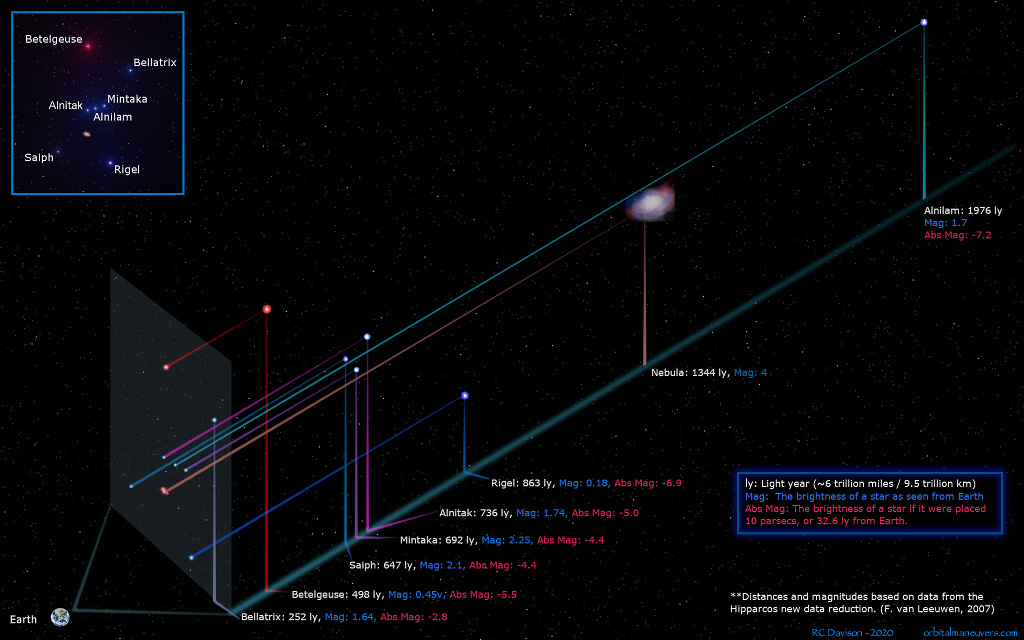Astronomy Picture of the Day
Discover the cosmos! Each day a different image or photograph of our fascinating universe is featured, along with a brief explanation written by a professional astronomer.
Illustration Credit & Copyright: Ronald Davison
Explanation: Orion is a familiar constellation. The apparent positions of its stars in two dimensions create a well-known pattern on the bowl of planet Earth's night sky. Orion may not look quite so familiar in this 3D view though. The illustration reconstructs the relative positions of Orion's bright stars, including data from the Hipparcus catalog of parallax distances. The most distant star shown is Alnilam. The middle one in the projected line of three that make up Orion's belt when viewed from planet Earth, Alnilam is nearly 2,000 light-years away, almost 3 times as far as fellow belt stars Alnitak and Mintaka. Though Rigel and Betelgeuse apparently shine brighter in planet Earth's sky, that makes more distant Alnilam intrinsically (in absolute magnitude) the brightest of the familiar stars in Orion. In the Hipparcus catalog, errors in measured parallaxes for Orion's stars can translate in to distance errors of a 100 light-years or so.
Authors & editors: Robert Nemiroff (MTU) & Jerry Bonnell (UMCP)
NASA Official: Phillip Newman Specific rights apply.
NASA Web Privacy Policy and Important Notices
A service of: ASD at NASA / GSFC
& Michigan Tech. U.
This is an automated email. If you notice any problems, just send me a note at gtracy@gmail.com. You can add and remove email addresses to this distribution list here, https://apodemail.org.Unsubscribe

No comments:
Post a Comment